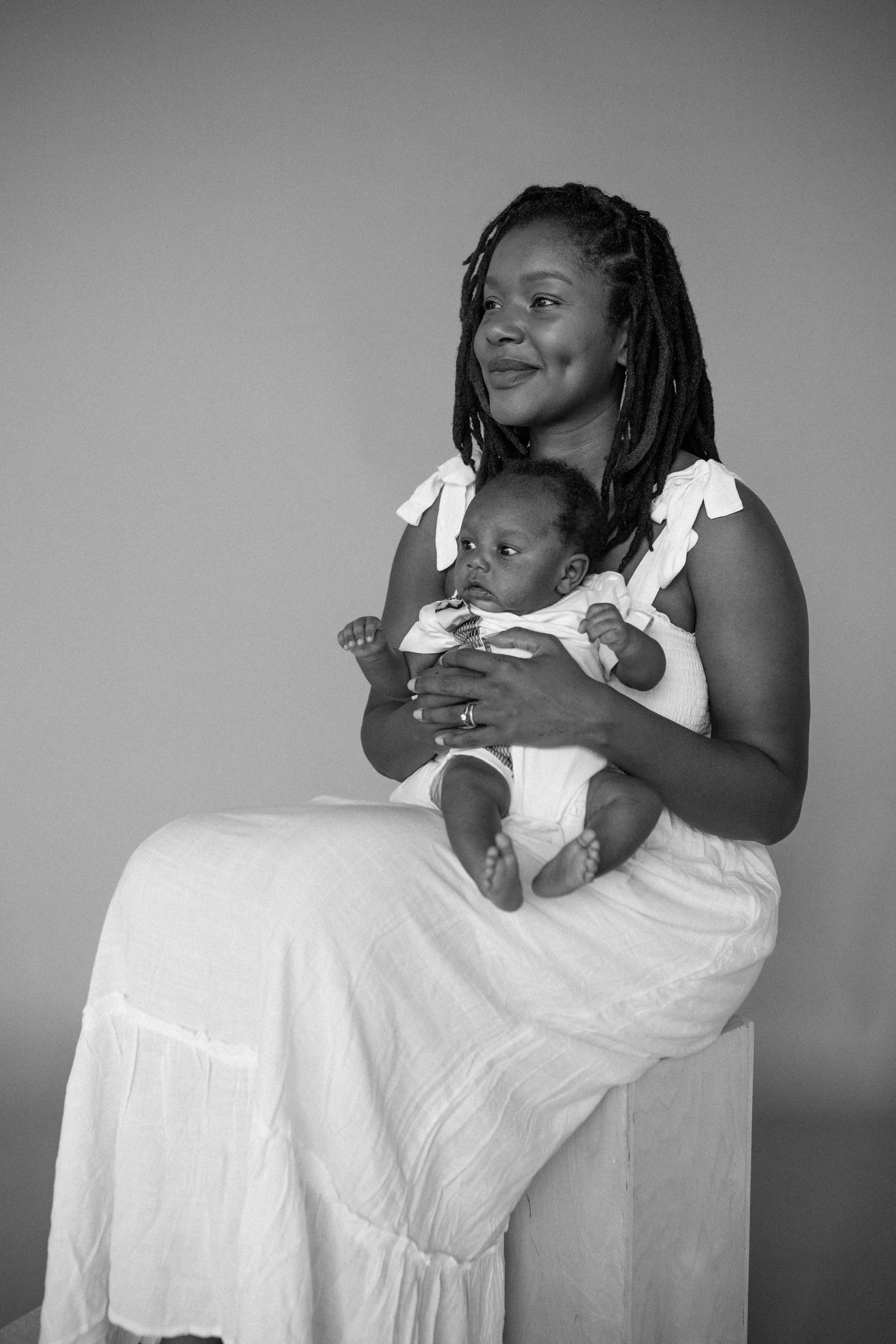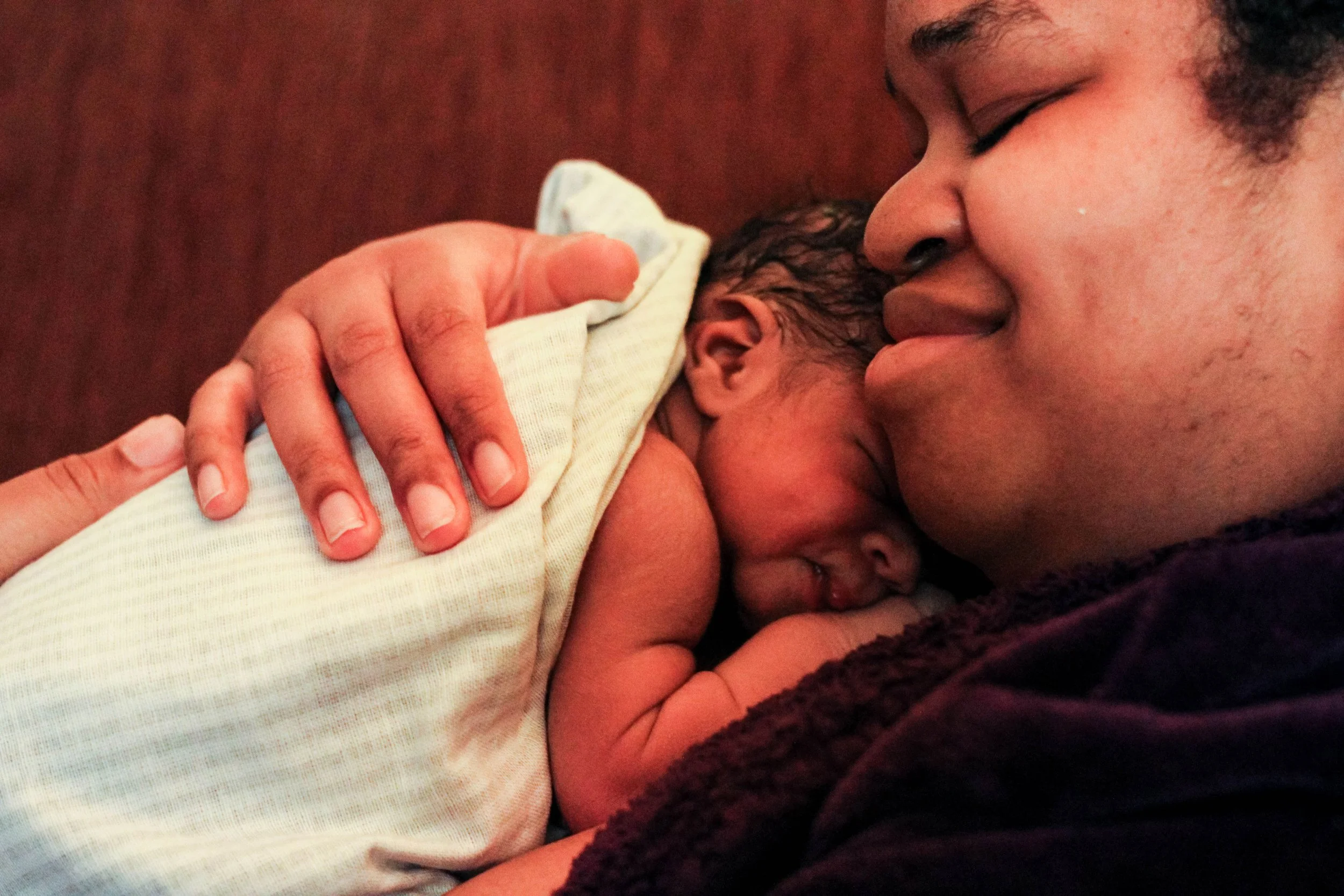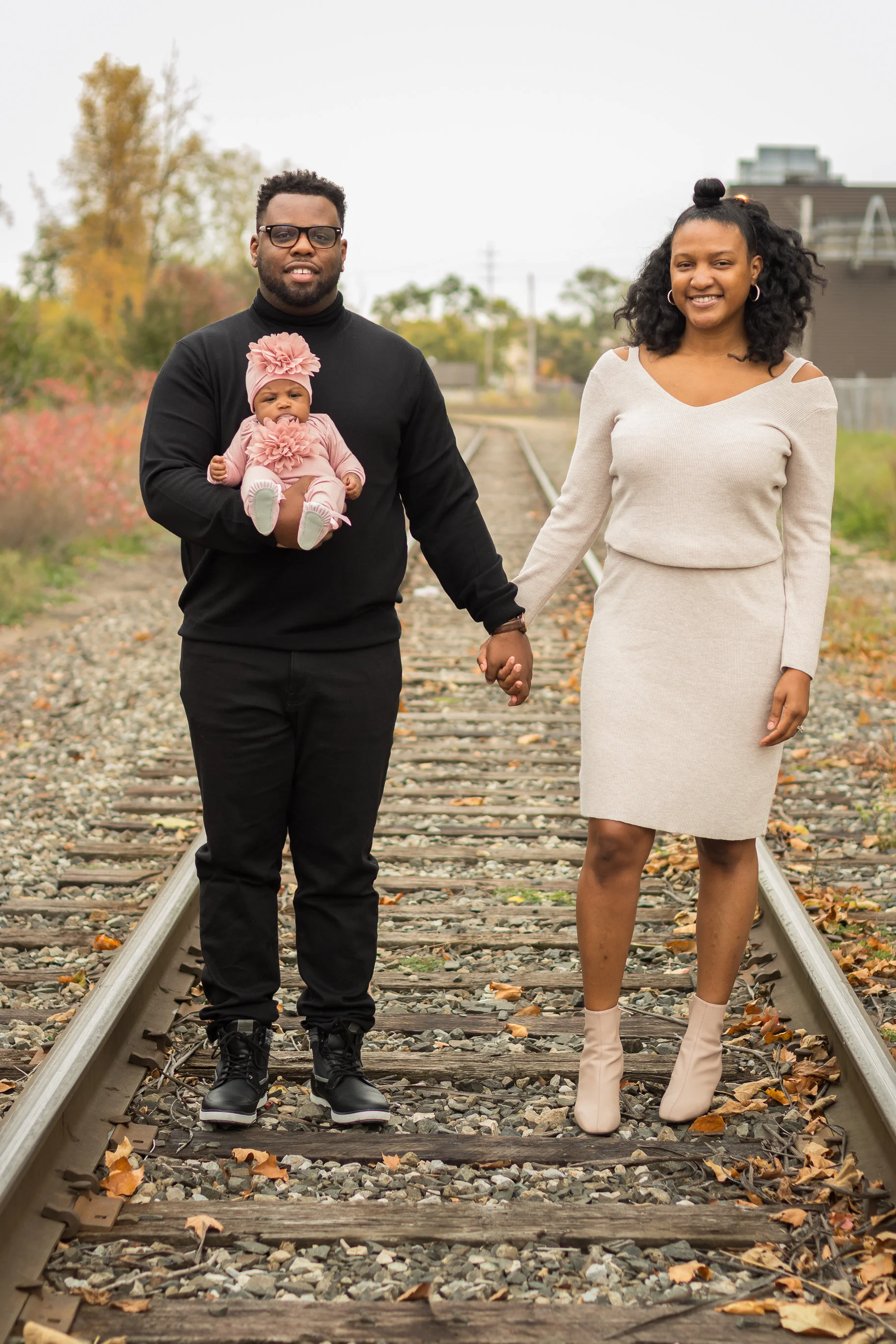We met Ivory and Ernest together for the first time in 2021. They shared their miscarriage and the birth journey of their daughter, Zamya. Now in 2025, Ivory shared their story without her partner’s physical presence, and we welcomed his spirit in.
A beautiful surprise of a second pregnancy between Ivory and Ernest was met with conflicting ideas about the timing and the physical and mental adjustments. A few weeks into the pregnancy, gratitude and excitement replaced Ivory’s early misgivings. Parenting a toddler while pregnant proved to be more of a challenge than Ivory anticipated. She laid the groundwork for a healthy pregnancy and prepared for a homebirth this time. Midwifery care, additional care with an obstetrician, chiropractic care, and regular massages allowed her to feel at ease as they prepared for birth.
Towards the end of the pregnancy at 34 weeks, Ernest experienced a severe headache that led them to take a trip to the emergency room. He was sent home without a diagnosis. About a week later, he experienced a catastrophic aneurysm rupture while visiting his favorite coffee shop. He was rushed to the hospital. The prognosis was difficult as the doctors could not offer answers, but they explored all of the options. In those early hours, Ivory started to see gestures of care and intention moving through her community. She was faced with holding life in her womb, raising life in her home, and the fragility of life holding on in the hospital. She held on as she was held.
Labor came. She prepared her space with affirmations, photos of her and Ernest filled the space, a friend facetimed from Ernest’s hospital room, and everyone on her birth team followed her lead. Baby Zenith was born peacefully at home.
Postpartum came with some ease as she was nurtured at home. Ivory struggled more emotionally with balancing joy and sadness. The hospital supported their family by moving Ernest to an area that would allow the baby to come with Ivory during visits. Ivory shared her experience managing care for herself, her children, and her husband. She attributes her practice of gratitude as a source of strength and community care through it all.
Ernest Levert Jr. joined the ancestors on January 8, 2025.
Read More

















